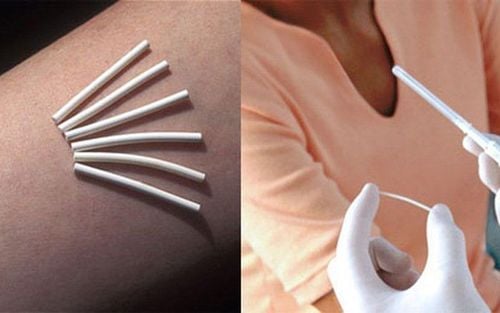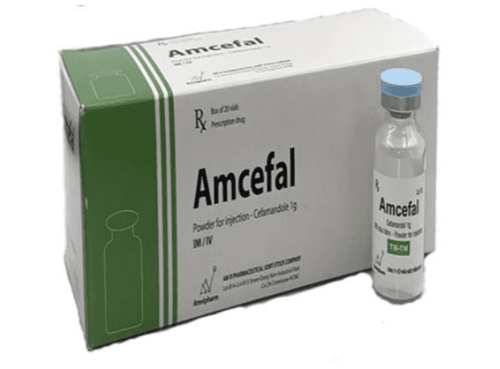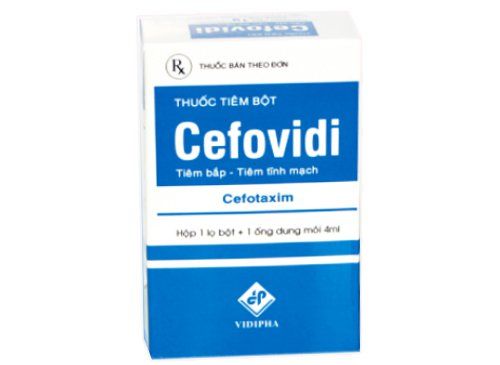This is an automatically translated article.
Postpartum maternal sepsis is an obstetric complication occurring due to infection during cesarean section or vaginal delivery. If not detected and treated promptly, the mother has a very high risk of death.1. What is postpartum maternal sepsis?
Postpartum sepsis is a complicated complication of infection, occurring in women after giving birth. The cause originates from an infection of any area in the intimate area. It occurs when bacteria, viruses, or fungi release chemicals into the bloodstream to fight inflammatory responses. These reactions have created a series of changes in the body, causing damage to organs such as the liver and kidneys, causing the body to weaken rapidly. This is also the most severe form of postpartum infection. Complications of the disease can include functional renal failure, interstitial nephritis, lung abscess, endocarditis, brain abscess, meningitis,... If not detected and treated promptly, Pregnant women with sepsis have a high risk of death.
2. Symptoms of sepsis in mothers after giving birth
Common symptoms of postpartum sepsis:
Body temperature above 38°C or below 36°C, accompanied by chills and chills; Tachycardia over 90 beats/min; Tachypnea over 20 beats/min; Perineal stitches have signs of pain, redness, discharge and discomfort; The average amount of urine is sharply reduced, urination is painful; Unstable mental status; Shortness of breath; Decreased platelet count; Arrhythmia ; Abdominal pain; The cervix is dilated, the uterus is enlarged, and the contraction is slow; painful uterine pressure; The discharge is cloudy yellow, foul-smelling, possibly bloody; Septic shock; Severe symptoms: Sweating, delirium, skin irritation, pale skin, yellow eyes and skin, uncontrollable bleeding; Acute complications that are life-threatening: Blood pressure drops rapidly, pulse is faster than normal, blood oxygen saturation levels drop suddenly, bleeding doesn't stop,... can be life-threatening.

Đau vùng bụng sau khi sinh
3. Causes of sepsis in postpartum women
Bacterial attack: After giving birth, a woman's body needs time to recover and wait for the fluid to exit the uterus completely. At this time, the pregnant woman's intimate area is quite wet, creating favorable conditions for bacteria and viruses to penetrate and grow. Types of bacteria that are easy to penetrate are Ecoli, streptococcus, staphylococcus, Bacteroides, Clostridium,... Through the vagina, they penetrate the fallopian tubes into the peritoneum, which can cause blood infections; Unsecured reproductive environment: Giving birth in unsafe environmental conditions, there are many types of bacteria and viruses with potential risk of blood infection in postpartum women; Poor maternal health: If the mother's health is too weak, her immune system is also vulnerable to bacterial and viral attacks, causing blood infections; Postpartum complications: Women with postpartum haemorrhage, anemia, premature rupture of membranes, prolonged labor, cesarean section or placental separation,... are at high risk of blood infection; Caesarean section: Women who give birth by cesarean section have a higher risk of developing postnatal sepsis than women who give birth vaginally.
4. Treatment of blood infections in postpartum women
Use antibiotics according to the antibiogram. When no antibiogram is available, broad-spectrum antibiotics should be used: cephalosporin group; metronidazole, quinolones,...; Combination of blood transfusion, heart support; When the temperature returns to normal or drops: Partial hysterectomy to rule out primary infection.
5. Measures to prevent sepsis in mothers after giving birth
Before pregnancy: Gynecological examination and periodical health examination, early stable treatment of gynecological and internal inflammatory diseases such as anemia, diabetes, cardiovascular disease, malnutrition,...; During pregnancy: Pregnancy examination as prescribed for early detection and timely treatment of gynecological inflammatory diseases, kidney disease, diabetes, hypertension,...; After giving birth: Eat enough nutrients, not excessively abstinence; should move around early, do not lie in one place in a dark room. In particular, pregnant women should abstain from sex on the advice of a doctor, clean and keep the intimate area, perineal stitches, and abdominal wall incision dry and clean. Fresh turmeric can be used for anti-inflammatory, antibacterial, edema reduction, ... to limit the risk of postpartum infection.

Bệnh viện Đa khoa Quốc tế Vinmec là địa chỉ điều trị bệnh an toàn, hiệu quả
Vinmec International General Hospital is one of the hospitals that not only ensures professional quality with a team of leading medical doctors, modern equipment and technology, but also stands out for its examination and consultation services. comprehensive and professional medical consultation and treatment; civilized, polite, safe and sterile medical examination and treatment space.
Please dial HOTLINE for more information or register for an appointment HERE. Download MyVinmec app to make appointments faster and to manage your bookings easily.
Reference source: National Guidelines for Reproductive Health Services - Ministry of Health












